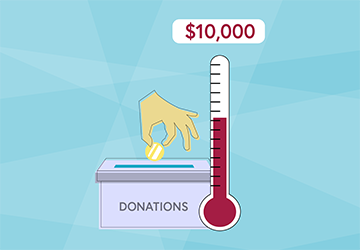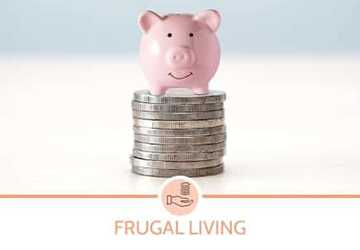
Top Budgeting Tips for Frugal Living
Living frugally can bring huge rewards. It allows you to save money, relieve financial anxiety, and focus on what matters. Here are the best savings strategies to effectively manage your finances and achieve your goals.

Learn About Budgeting for Frugal Living
A frugal living budget requires careful planning that emphasizes saving money and eliminating unnecessary expenses. This type of budget requires discipline and an unwavering commitment to making sound financial decisions. The most important principles include:
- Check your spending: Keep detailed records of all your spending.
- Set financial goals: Define your financial goals.
- Prioritize necessities over luxuries: Focus on necessities expenses first.
- Review and adjust: Review your budget regularly and make adjustments when necessary.
Effective budgeting methods
There are many ways to budget effectively to suit different lifestyles and preferences. Here are some popular ones:
Zero-based budgeting
Zero-based budgeting is operating where every dollar has a specific goal. By the end of the month, your income minus expenses should be zero. This approach ensures that money is well-spent.
- List all sources of income: Include all sources of income.
- Account for all expenses: Assign every dollar to an expense category.
- Monthly adjustments: Re-evaluate categories and adjust as needed.
Envelope system
The envelope system involves using currency to pay for different categories of expenses. This approach helps avoid overspending because cash can only be used for its intended purpose.
- Create envelopes for categories like groceries, entertainment, and utilities.
- Divide Cash: Place the budgeted amount of cash into each envelope.
- Observe limits: spend only the money in the envelope.
50/30/20 rule
The 50/30/20 rule is a simple way to effectively budget for frugal living, which involves dividing your income into three categories:
- 50% goes towards needs: rent, food and additional expenses.
- 30% for wishes: non-essential expenses such as dining out and entertainment.
- 20% for savings: savings, investments and debt repayments.
Budgeting Strategies for Frugal Living
Using frugal lifestyle budgeting strategies can significantly increase your ability to save. Here are some practical tips:
Meal plan
Meal planning can help you save money on grocery shopping and minimize food waste.
- Plan weekly meals: Create a general food schedule and compile a corresponding shopping list.
- Buy in bulk: Stock up on non-perishable items to optimize your tax spend.
- Prepare meals at home: Cook instead of eating out.
DIY solution
Choosing DIY solutions can reduce the cost of various household goods and services.
- Home Repair: Learn basic home repair skills to avoid hiring professionals.
- Homemade Cleaning Products: Make your cleaning products from cheap ingredients.
- Craft Gifts: Make handmade gifts instead of buying expensive ones.
Second-hand shopping
Buying second-hand items is a great way to save money and reduce waste.
- Thrift Store: Browse thrift stores for clothing, furniture, and homewares.
- Online Marketplaces: Use platforms like eBay or Facebook Marketplace to find bargains.
- Flea Markets: Visit a flea market to find unique and affordable items.
Digital budgeting tools
Using digital tools can significantly improve your ability to stick to your budget. Here are some productive options:
Budget apps: Use apps like Mint, YNAB (You Need a Budget), or PocketGuard to track your spending and manage your budget automatically and carefully.
- Spreadsheets: Develop custom spreadsheets to monitor income, spending, and savings goals. Google Sheets and Excel provide templates to simplify this process.
- Online Calculator: Use the online budget calculator to estimate and adjust your monthly budget accurately and efficiently.
Debt reduction strategy
Debt reduction is crucial when budgeting for a frugal lifestyle. Here are some strategies:
The snowball method involves Paying off the smallest debts first, then gradually moving to more enormous debts and getting bigger.

Avalanche method: Prioritize debt payments with the highest interest rates to save interest in the long run.
Debt Consolidation involves combining numerous debts into a single loan with a lower interest rate, simplifying payments and potentially reducing costs.
Efficient supply management
Effectively managing utility costs can go a long way toward a frugal lifestyle.
- Energy-efficient appliances: Invest in energy-efficient appliances to reduce utility bills.
- Save water: Implement water-saving techniques such as low-flow shower heads and fix leaks immediately.
- Smart Thermostat: Optimize heating and cooling with a programmable thermostat to reduce energy consumption.
Health & Wellness on a Budget
Maintaining health and well-being doesn't have to be expensive. Here are some frugal tips:
Work out at home: Instead of paying for a gym membership, use online workout videos, apps, or home fitness equipment.
Prevention: To avoid expensive medical bills, focus on preventive measures such as regular exercise, healthy eating, and regular checkups.
Affordable Health Care Resources: Discover community clinics or health plans that offer services at a lower cost or for free.
Financial knowledge
Investing in financial education will help you make intelligent budgeting decisions and live a frugal lifestyle.
- Books & Podcasts: Read and listen to podcasts about personal finance and frugal living.
- Online courses: Improve your financial knowledge with free or low-cost online courses.
- Workshops and seminars: Attend workshops and seminars hosted by local organizations or community centres.
Smart shopping habits
Careful shopping habits can help you save money and stay within your budget.
- Value Proposition Analysis View offers from different retailers online and in-store before completing the transaction.
- Special Offers and Discounts: Take advantage of coupons, discounts and rebates to spend less.
Buy generic drugs: Choose generic or store-brand items, often offering comparable quality at a lower cost.
Implement an Economic Budget Strategy
Consider these steps to effectively implement a budget strategy for frugal living by following effective budgeting methods:
- Set clear goals: Decide what you want to achieve, whether sneaking in a big purchase, paying off debt, or building an emergency reservoir.
- Create a detailed budget: Create a comprehensive budget using the above methods.
- Track your progress: Monitor your spending and savings to ensure you're on track.
- Make adjustments: Adaptable and willing to adjust your budget as your financial situation changes.
Conclusion
Using advanced budgeting strategies to promote a frugal lifestyle can empower you to maximize your financial resources and achieve your goals. By understanding a budget for frugal living and applying effective budgeting methods, you can make intelligent decisions and build a secure financial future. Implementing frugal budgeting strategies like meal planning, DIY solutions, and thrift shopping will further increase your ability to save money and live a fulfilling life. Remember, consistency and adaptability are keys to successful budgeting.





